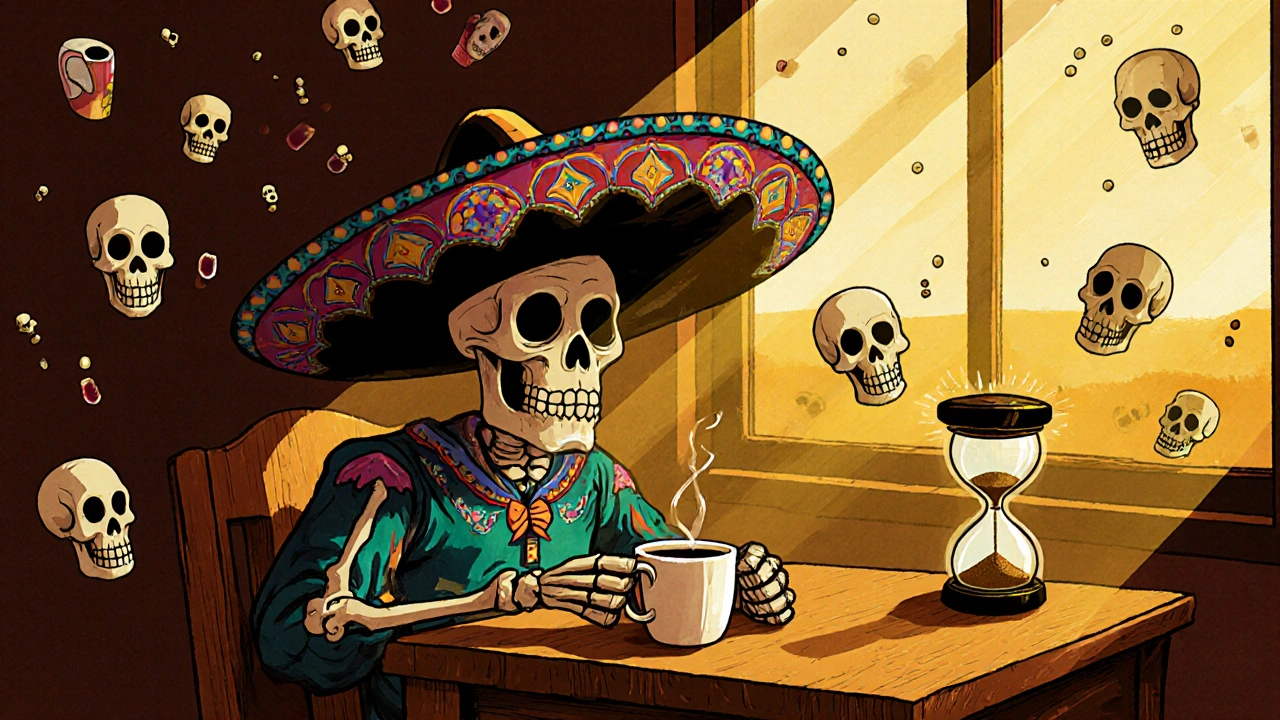Caffeine Cutoff Times: When to Stop Coffee for Better Sleep
Learn the science-backed caffeine cutoff time to improve sleep onset, reduce nighttime wakefulness, and boost sleep quality. Stop guessing-start sleeping better.
When you drink coffee or energy drinks, you’re not just getting a quick boost—you’re introducing a drug with a predictable caffeine half-life, the time it takes for half the caffeine in your body to be broken down and eliminated. Also known as caffeine metabolism, this process varies widely between people and affects everything from sleep to anxiety. On average, it takes about 5 hours for your body to clear half the caffeine you consumed, but that number can swing from 3 to 10 hours depending on your genes, liver function, and what else you’re taking.
That’s why two people drinking the same cup of coffee can have totally different experiences. One might fall asleep easily at midnight; the other is wide awake at 2 a.m. Your caffeine sensitivity, how your body reacts to caffeine based on genetics, age, and medication use plays a huge role. Smokers clear caffeine faster—sometimes in just 3 hours—because smoking speeds up liver enzymes. On the flip side, birth control pills and some antibiotics can slow caffeine breakdown, making its effects last longer. Even pregnancy changes things: in the third trimester, caffeine’s half-life can stretch to 15 hours or more, which is why doctors cut recommendations in half.
Understanding drug elimination, how your body removes substances like caffeine over time helps you avoid surprises. If you’re on medications like fluvoxamine or ciprofloxacin, caffeine can build up dangerously. People with liver disease or older adults often feel caffeine’s effects longer because their bodies process it slower. Even your diet matters—grapefruit juice can interfere with caffeine metabolism, just like it does with some blood pressure meds.
Knowing your caffeine half-life isn’t just about avoiding sleepless nights. It’s about managing energy, anxiety, heart rhythm, and even how well your other drugs work. That’s why you’ll find real-world stories here—like how someone switched from afternoon coffee to tea and finally slept through the night, or why a patient on antidepressants got dizzy after their usual espresso. These aren’t theoretical tips. They’re lessons from people who lived through the effects of caffeine timing, dosage, and interactions.
Below, you’ll find detailed guides on how caffeine interacts with medications, how it affects sleep cycles, why some people can drink coffee late and still sleep fine, and how to adjust your intake based on your body’s unique rhythm. No guesswork. No fluff. Just clear, practical info based on real cases and science you can use today.

Learn the science-backed caffeine cutoff time to improve sleep onset, reduce nighttime wakefulness, and boost sleep quality. Stop guessing-start sleeping better.